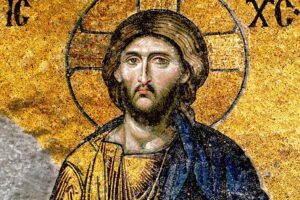Last edited on 22/Jan/2021
Introduction
The Christian-based cult known as Mormonism believes that several passages of the Bible teach the premortality of human beings.1,2 However, such a teaching is completely foreign to the Bible. Because no passage of Scripture teaches this, let’s examine several of those passages to see the actual message that the Bible is conveying to us. To find out what the Bible teaches about the beginning of human existence, see “Is the Premortality of Humans Biblical?“
Jeremiah 1:5
Before I formed thee in the belly I knew thee; and before thou camest forth out of the womb I sanctified thee, and I ordained thee a prophet unto the nations. (Jeremiah 1:5, KJV)
This passage just teaches God’s omniscience—his infinite knowledge and intimacy towards us. Indeed, before we were born and came into existence, God knew all about us (Psalm 139:1–6). He knew what we would look like, what our personalities would be like, what our genders would be, where we would be born, whether or not we would serve God in the future, etc. Note that the passage doesn’t say that Jeremiah knew God before he was formed in the womb; it just says that God knew him. Despite the fact that God knew all about us before we were even put in our mothers’ wombs, we had no knowledge of God whatsoever, because we didn’t yet exist. God knew about us before we existed because we were in his grand plan of creation; we only existed in the mind of God.
Hebrews 12:9 and Acts 17:29
Furthermore we have had fathers of our flesh which corrected us, and we gave them reverence: shall we not much rather be in subjection unto the Father of spirits, and live? (Hebrews 12:9)
Forasmuch then as we are the offspring of God, we ought not to think that the Godhead is like unto gold, or silver, or stone, graven by art and man’s device. (Acts 17:29)
Hebrews 12:9 does not mention that we once existed prior to our births as spirits; it simply mentions that God is the Father of spirits. Each human has a soul or a spirit, which is the non-physical part within us that makes us who we are, and the part of us that is separated from our bodies and continues to live after we die (Acts 7:59–60). While we have parents on Earth who contributed towards our physical births, we only have one true Father in Heaven, who made our spirits within us (Matthew 23:9). This is why he is called the Father of spirits.
Acts 17:29 calls all people the children of God, however, it is not saying that in the literal sense. We know this because the Bible makes a very clear distinction to this when it calls Christians the children of God. Christians become children of God by being adopted into his family by the Holy Spirit (Romans 8:14–16; Ephesians 1:5–6). Therefore, it is impossible for all people to be the literal or adopted children of God. All people are God’s offspring only in the sense that he created all of us after his own image and likeness (Genesis 1:26–27; James 3:9). This shows the futility of man-made idols. God is higher than human beings because he created us; he created us with intelligence, emotions, a soul, etc. Therefore, how much higher must he be than the idols that have no intelligence, emotions, souls, etc., which only humans (God’s creation) have made?
Ephesians 1:4
According as he hath chosen us in him before the foundation of the world, that we should be holy and without blame before him in love: (Ephesians 1:4)
Like Jeremiah 1:5, this passage just teaches of God’s omniscience. Because God knows everything (1 John 3:20), this includes everything in the future, as well as the past and present. God knew us, because we were in his grand plan of creation since the beginning of time. According to this passage, God has already chosen those who would believe in him in the future, for their salvation, prior to our births and existence. Jesus said that he already knows who his sheep are, that his sheep likewise know who he is, and that he is the one who seeks them out and brings them into his fold, because they will recognise him (John 10:14–16). As the sovereign Lord of creation, he can do this (Psalm 115:3).
Jude 1:6 and Revelation 12:9
And the angels which kept not their first estate, but left their own habitation, he hath reserved in everlasting chains under darkness unto the judgment of the great day. (Jude 1:6)
And the great dragon was cast out, that old serpent, called the Devil, and Satan, which deceiveth the whole world: he was cast out into the earth, and his angels were cast out with him. (Revelation 12:9)
These passages cannot be used to support the doctrine of pre-mortal existence, because they are talking about angels, not humans. Angels are, by nature, heavenly beings, and they were created in Heaven (their first estate) as messengers of God, who go back and forth from Heaven to Earth (Luke 2:10–15), contrary to human beings. The first estate of angels in this passage refers to Heaven. The passages are just saying that the angels who rebelled against God were cast out from Heaven to dwell on Earth and became fallen angels. It doesn’t say anywhere in the Bible that humans were associated with this rebellion.
Reference List
1. Doctrines of the Gospel Student Manual, (2000), 13–15, Chapter 6: Our Premortal Life, the Church of Jesus Christ of Latter-day Saints, accessed on 25 September 2017, <https://www.lds.org/manual/doctrines-of-the-gospel-student-manual/chapter-6-our-premortal-life?lang=eng>
2. Guide to the Scriptures, Premortal Life, the Church of Jesus Christ of Latter-day Saints, accessed on 25 September 2017, <https://www.lds.org/scriptures/gs/premortal-life>
All scripture quotations are from the King James Version unless specified otherwise.




